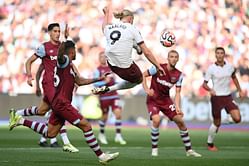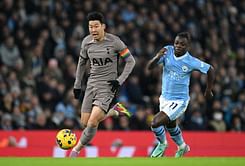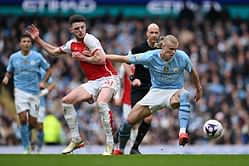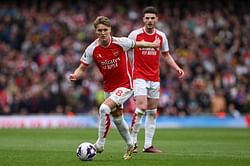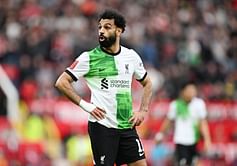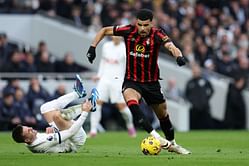There is a huge craze of Fantasy Premier League among the football fans, and with the huge craze comes huge competition and with huge competition, there is very slim chance of you winning. However, we have done the hard part of compiling the best Fantasy Premier League Tips to give you the edge over others and help you win the game.

Picking your initial squad - Basic Fantasy Premier League Tips
Squad Size: 15
- 2 Goalkeepers
- 5 Defenders
- 5 Midfielders
- 3 Forwards
Budget: £100million
Best Fantasy Premier League Tips to Start with:
Maximum 3 players per PL team:
One of the most basic Fantasy Premier League tips to follow is to not include more 3 players from the same premier league team.
Managing your squad
Pick your starting 11 from the 15 players that comprise of your entire squad before the Gameweek deadline. Don’t forget to note the gameweek deadlines though because the pain is brutal.
Captain & Vice-Captain - Our most important Fantasy Premier League Tip
From your playing 11, pick a captain and vice-captain. The captain whom you select will have his points doubled for the gameweek. For more information about selecting a captain check out FPL Captain Tips
What does Vice Captain do in FPL?
In case the captain doesn’t play due to an injury or due to some unforeseen circumstance, your vice-captain becomes your captain and gets double the points for that gameweek. If both the captain and vice-captain play 0 minutes in a gameweek then no players’ scores will be doubled.
So prior to every gameweek make sure to choose a fresh captain or ensure your select captain is available for the gameweek and is facing some of the easiest fixtures in the coming gameweeks. This one Fantasy Premier League Tips is bound to get you the maximum number of points in a Premier League Season.
What is a double gameweek?
Double gameweek occurs when a minimum of two teams play two games in a single gameweek
Pick your Bench
In events like injuries and postponements, a player from your playing 11 will be swapped with a player from the bench.
Key Fantasy Premier League Tips to Follow:
Based on the priorities you assign, automatic substitutions are processed at the end of the Gameweek as follows:
- If your goalkeeper doesn't play in the Gameweek, he will be substituted by your replacement goalkeeper, if he played in the Gameweek.
- If any of your outfield players don't play in the Gameweek, they will be substituted by the highest priority outfield substitute who played in the Gameweek and doesn't break the formation rules (eg. If your starting team has 3 defenders, a defender can only be replaced by another defender a Fantasy Premier League Tip that will take you far ahead of others).
Fantasy Premier League Tips for Transfers
Prior to the GW1 (Gameweek 1) deadline, unlimited transfers can be made at no cost.
Your squad purchased on the first GW doesn’t necessarily become the same squad for the season. Every week you’re given 1 free transfer in which you can transfer a player out and swap him for a player in the budget.
Each additional transfer you make in the same Gameweek will deduct 4 points from your total score (Classic scoring) and match score (Head-to-Head scoring) at the start of the next Gameweek - an FPL Tip to keep in mind.
How many free transfers can you save?
If you do not use your 1 free transfer, it adds to 2 free transfers the week after. Although, the capping for the free transfers in your bank is only upto 2; anything beyond the 2 is in vain.
Player Prices
Player prices aren’t constant all through the course of the season. Another Fantasy Premier League Tip to Remember is depending on the number of participants who have transferred a particular player in or out, the price of the player appreciates or depreciates. The change in prices commences only after the season has kicked-off.
Note: The price shown on your transfers page is a player's selling price. This selling price may be less than the player's current purchase price as a sell-on fee of 50% (rounded up to the nearest £0.1m) will be applied on any profits made on that player.
For example, if you buy a player for £8.3m and when you transfer him his price is £9.0m, his selling price will be £8.6m.
FPL Chips to be used :
-Bench Boost
-Free Hit
-Triple Captain
-Wildcard
What is Bench Boost?
In a regular GW, the points scored by your bench are not counted in your total points. On using the bench boost chip, the points of your bench are added to your total score.
What is a Free Hit in FPL?
One can make unlimited free transfers for a single gameweek. At the end of the gameweek, your squad will return back to how it was at the beginning of the gameweek.
What is triple captain?
Your captain points are tripled instead of doubled for a single Gameweek. (We recommend you strategically play this during a doubles gameweek - in layman’s terms, where there is more than a single fixture for the same team in a gameweek)
What is Wildcard?
Wildcard is used to make Unlimited free transfers throughout a gameweek, refreshes twice every season. Time your wildcard to perfection and you have another life in the game.
Wildcard 1 - Available from the start of the season upto 29 December.
Wildcard 2 - Anytime from January until the end of the season. We recommend you use it after the transfer window closes - end January.
FAQs
Are Wild Card transfers Permanent?
Yes, Wildcard transfers are permenant.
What is the difference between Wildcard and Free-Hit?
A Wildcard is used twice a season, it is used to make unlimited free transfers for throughout a gameweek. Free Hit is used once in a season and FPL players can make unlimited free transfers for a single game week and then the squad will revert back to how it was at the beginning of the gameweek.
Can you play wildcard and bench boost together?
No, Wildcard and Bench Boost cannot be played together, only one chip can be used at a time.
Scoring
During the season, your fantasy football players will be allocated points based on their performance in the Premier League. you can also check last season's FPL Stats for more reference.
FPL Point System
| Action | Points |
| For playing up to 60 minutes | 1 |
| For playing 60 minutes or more (excluding injury time) | 2 |
| For each goal scored by a goalkeeper or defender | 6 |
| For each goal scored by a midfielder | 5 |
| For each goal scored by a forward | 4 |
| For each goal assist | 3 |
| For a clean sheet by a goalkeeper or defender | 4 |
| For a clean sheet by a midfielder | 1 |
| For every 3 shot saves by a goalkeeper | 1 |
| For each penalty save | 5 |
| For each penalty miss | -2 |
| Bonus points for the best players in a match | 1-3 |
| For every 2 goals conceded by a goalkeeper or defender | -1 |
| For each yellow card | -1 |
| For each red card | -3 |
| For each own goal | -2 |
After entering your squad, you can join and create leagues to compete with friends and other game players.
Bonus Points
In the FPL, The Bonus Points System (BPS) utilizes a range of statistics to create a BPS score for every player. In this system, the three best performing players in a match will be awarded bonus points according to their performances. The best from the three gets 3 points and the 2nd best two points and remaining players gets one point.
Examples of how bonus point ties will be resolved are as follows:
If there is a tie for first place, Players 1 & 2 will receive 3 points each and Player 3 will receive 1 point.
If there is a tie for second place, Player 1 will receive 3 points and Players 2 and 3 will receive 2 points each.
If there is a tie for third place, Player 1 will receive 3 points, Player 2 will receive 2 points and Players 3 & 4 will receive 1 point each.
| Action | BPS |
| Playing 1 to 60 minutes | 3 |
| Playing over 60 minutes | 6 |
| Goalkeepers and defenders scoring a goal | 12 |
| Midfielders scoring a goal | 18 |
| Forwards scoring a goal | 24 |
| Assists | 9 |
| Goalkeepers and defenders keeping a clean sheet | 12 |
| Saving a penalty | 15 |
| Save | 2 |
| Successful open play cross | 1 |
| Creating a big chance (a chance where the receiving player should score) | 3 |
| For every 2 clearances, blocks and interceptions (total) | 1 |
| For every 3 recoveries | 1 |
| Key pass | 1 |
| Successful tackle (net*) | 2 |
| Successful dribble | 1 |
| Scoring the goal that wins a match | 3 |
| 70 to 79% pass completion (at least 30 passes attempted) | 2 |
| 80 to 89% pass completion (at least 30 passes attempted) | 4 |
| 90%+ pass completion (at least 30 passes attempted) | 6 |
| Conceding a penalty | -3 |
| Missing a penalty | -6 |
| Yellow card | -3 |
| Red card | -9 |
| Own goal | -6 |
| Missing a big chance | -3 |
| Making an error which leads to a goal | -3 |
| Making an error which leads to an attempt at goal | -1 |
| Being tackled | -1 |
| Conceding a foul | -1 |
| Being caught offside | -1 |
| Shot off target | -1 |
How to play the game?
While it may seem like fun and games, there is a lot of planning, time and effort that individuals put into their teams. Strategizing the team, analyzing the upcoming fixtures, past performance of the players, visualizing the season including the latest transfers and within them, which bets will actually payoff is a daunting task.
